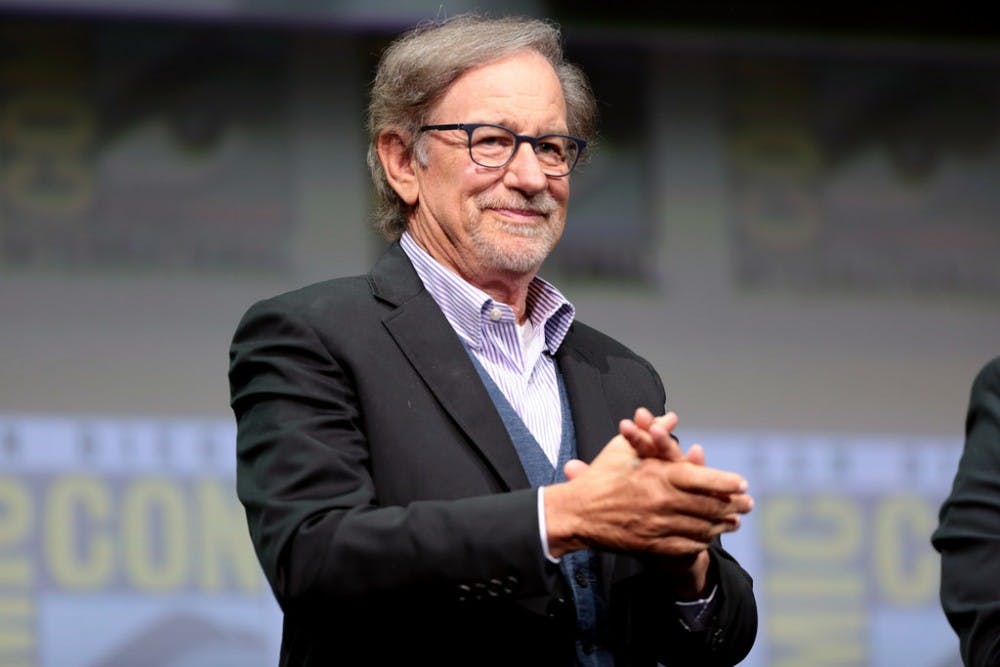Netflix is more than just a streaming service. Conceived initially as a DVD rental business, the company has grown far past its initial model and is now best known for producing and streaming its own original series and movies. The business model raises questions around the nature of film production, movie theaters, and how we view the medium as a whole. Steven Spielberg thinks that Netflix’s artistry is nonsense.
Spielberg, director of countless classics from Jaws to Saving Private Ryan, has been in the industry for over 40 years—much longer than Netflix, which was founded in 1997. Spielberg’s credits are prolific and widespread; he is one of, if not the most important name in cinema.
After the 91st Oscars, it became clear that Netflix is producing more than just run–of–the–mill genre flicks. Alfonso Cuarón’s Roma, distributed by Netflix, played both in theaters and on the streaming service. The black–and–white foreign language film garnered extensive critical acclaim, audience adoration, and seven Oscar nominations, winning three for Best Foreign Language Film, Best Cinematography, and Best Directing.

Photo by Richard Davies // CC by 4.0
Spielberg, a member of the Academy's Board of Governors, argues that Netflix’s productions do not deserve a place at the Oscars. He suggests that Netflix originals surely count as TV movies, not proper films, and are deserving of an Emmy, but not an Oscar. Spielberg, coming from the the viewpoint that the convenience and comparatively low cost of streaming services will deter people from going to movie theaters, says that, "The greatest contribution we can make as filmmakers is to give audiences the motion picture theatrical experience. I'm a firm believer that movie theaters need to be around forever."
Spielberg says this, of course, as an already–established director, writer, and producer—someone who has already climbed the ranks of Hollywood. It is harder for smaller, newer filmmakers to gain popularity, and Netflix chooses to pick up many of these artists and boost them to otherwise unfound fame.
On the other hand, some of Spielberg’s criticism is valid; not every production by Netflix is a masterpiece. Father of the Year and The Ridiculous Six each have an astonishing 0% critical rating on Rotten Tomatoes. In general most of Netflix's pieces are not on the same level of artistry as Oscar or Golden Globe nominees. Many pieces, while not necessarily Oscar–worthy, do attract amazing popularity, such as Bird Box, Stranger Things, or Grace and Frankie.

Photo by Carlos Somonte
However, what Spielberg brings into question is the blurred boundary between film and television. Film is usually associated with a specific release in theaters—people often use box office totals to judge a movie’s success or failure relative to its budget. But how can we compare Roma in these terms when it only had a three–week run and most audiences would prefer to watch it in the comfort of their own homes, paying no extra cost than their Netflix subscription? Must the nature of critical film success be reassessed with the rising era of Amazon Prime, Hulu, and Netflix Originals?
In a word–yes. The widespread popularity of Netflix content indicates a shifting audience—one that doesn’t necessarily go into theaters to enjoy movies. While many classical directors, Spielberg included, uphold the sanctity of the movie theater, the act of attending a movie is one that requires more time, energy, and money. Shelling out $14 to watch a film from start to finish in a darkened space demands more attention and time than watching a film casually, in parts, whenever one has the chance. These are two very different experiences, and perhaps Spielberg presents a valid point in suggesting that we continue to support movie theaters, but the fact of the matter is that modern audiences, especially students, simply don’t seem to care enough about it.
Roma’s standing as a Netflix film almost certainly impacted how it did at the Oscars. Street predicted it would win Best Picture, which it lost to the much–debated Green Book. The Academy will continue to hold prejudices against Netflix films until the way we fundamentally view Netflix films is changed. The small screen is just as valid as the big one.







